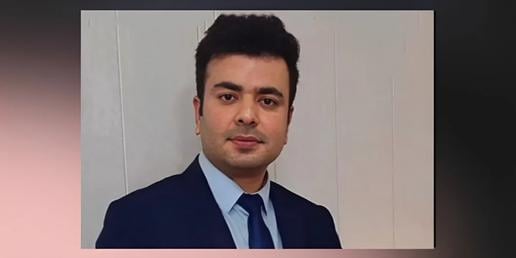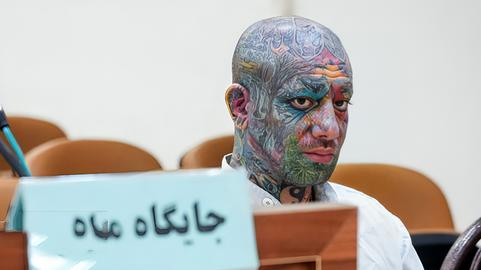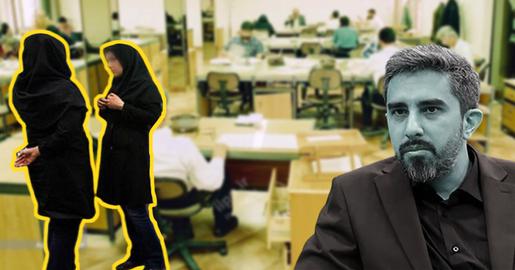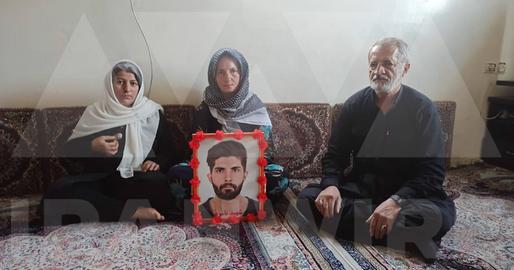Elaheh Ahmadi says she has never had a one-dimensional life. The daughter of a military man, she was born in May 1982. After she failed her university entrance exams in 2001, her father, a disciplinarian who worked as a shooting instructor in the army, took her to the shooting gallery.
Initially, she was not fond of shooting. She has said in the past that she would have preferred to spend her time studying so she could get into college and study biology. But her father did not want his daughter to live with a sense of defeat — and now she has become one of the treasures of Iranian shooting. Her father, Mostafa Ahmadi, is listed on her records as her first coach.
Elaheh Ahmadi has won a long list of medals. In November 2015, the International Shooting Sports Federation (ISSF) ranked her first in the world in the 10-meter air rifle women’s division. She is the first Iranian woman to achieve the top ranking in an international sport. “Should they have thanked me?” she said to a reporter from the Iranian Students’ News Agency (ISNA) after the announcement. “I don’t know. Now I have to wait and see whether anybody will bother to do so if I win a medal at the Olympics.”
Ahmadi’s other achievements include coming sixth in the women’s 10-meter air rifle at the 2012 London Olympics.
But there have been several occasions when she has considered bidding farewell to shooting. First, when she married Asghar Nourbakhsh, she thought she might not have time for her sport. But she carried on. “When I returned home after practice, my husband treated me in a way that made me forgot all about being tired,” she told the media last year. She soon got used to being both a wife and an athlete.
Then, two years ago, her son Bavar was born. Most people were under the impression that having a baby would either slow Ahmadi down or make her give up shooting altogether. But when he was a week old, she brought the baby to practice with the national team. For his first year of life, Bavar was looked after by a teammate or Ahmadi’s coach while Ahmadi practiced her shooting.
“In 2003 it dawned on me that I had become a professional shooter,” she has said. “I told myself I would not give up until I won an Olympic medal. I came close in London, but it did not happen. This time I can do it.” Even if she does not win a medal at Rio this year, she still believes she has a chance at the 2020 Olympics.
Shooting without Bullets
Ahmadi says it was tough qualifying for the Olympics, and that being a professional shooter is a constant challenge. For more than six months in 2016, she and her teammates had to practice “dry”. They had the guns, which were in good condition — but no bullets. “They told us we were under sanctions and they couldn’t buy bullets,” Elaheh Ahmadi told ISNA at the time. “But now that the sanctions have been lifted, we have found out where the problem lies.”
The issues apparently stem from Seyed Mehdi Hashemi, the president of Iran’s Shooting Federation. Previously, in 2005, President Mahmoud Ahmadinejad appointed Hashemi — not to be confused with the son of former President Hashemi Rafsanjani — as his Minister of Welfare and Social Security, but failed to secure a vote of confidence from parliament. Soon, however, he was appointed president of the shooting federation. He also served as an MP for Tehran from 2012 to 2016. Because of his affiliation with Ahmadinejad, some officials in President Rouhani's Ministry of Sport hold a grudge against Hashemi.
In 2015, Iran’s women's shooting team was scheduled to travel to Germany to participate in that year’s ISSF World Cup in Munich. But a Sports Ministry committee responsible for approving the budget for events outside Iran would not approve the trip. Robab Shahrian, the deputy in charge of women’s sports at the ministry, was forced to personally intervene. She went to the minister’s office and insisted he contact President Rouhani’s office and secure the budget. Four female shooting athletes were allowed to go to Germany, including Ahmadi — though, again, they were without bullets. But again, Robab Shahrian got them the budget. And when the Sports Ministry refused to renew the contract for Laszlo Szucsak, the well-known Hungarian coach for Iran’s National Shooting Team, it was Shahrian who went to Iran’s National Olympics Committee, again about the budget, and obtained the permission to keep him on.
For more than six months, Elaheh Ahmadi and her teammates practiced without bullets. But now she hopes that by practicing intensely for four months, she will realize her dreams. Her big dream is to win a medal at the Rio Olympics — and there is every chance she will succeed. After all, she was the first Iranian athlete to win Iran a medal for shooting at an international competition.
Since 2010, Ahmadi has won Iran two gold, three silver and three bronze medals at international competitions, including at the Asian Games. And she won a gold medal at the 2015 ISSF World Cup, the competition she nearly missed.
Her second dream is to travel with her family. “I don’t care about fashion or luxury,” she has said. “But I do love traveling. Since my son was born we have not traveled together even once. I hope after the Olympics we can travel together for the first time.”
When Ahmadi returned from the World Cup last year, she spoke fondly of her family and what their support meant to her. “I hope one day my son will be proud of me,” she said. Perhaps if she wins a medal at the Olympics, all Iranians will be proud of this impressive athlete, who has achieved so much despite the many challenges she has faced.





























comments